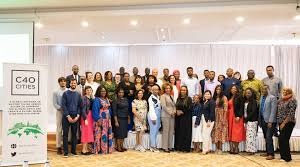
As the West and the East continues competition over Africa’s opportunities intensifies, China continues to solidify its position as the largest foreign investor in Africa, particularly in the Sub-Saharan region, where Ethiopia is located. China recently pledged 400 million Yuan to Ethiopia, a donation that underscores its support for Ethiopia’s ongoing economic activities.
Although the trade deficit still favors China, it has slightly narrowed. China remains Africa’s largest economic partner, receiving 16% of African exports, while the latter imports 20% of its needs from China, marking a slight progress in addressing the trade imbalance.
With Ethiopia, China has reinforced its role as a dominant foreign investor. Chinese investments exceeded 5 billion USD in 2023, and nearly 2,000 Chinese-led projects have created 65,000 jobs, making a significant impact on the country’s economic landscape. Yang Yihang, Minister Counsellor of the Chinese Embassy in Addis Ababa, highlighted these figures during the Ethio-Chinese Business Forum held last May. Thus, Chinese investment portfolio is expected to grow as foreign direct investment (FDI) between the two countries continues to strengthen.
Chinese enterprises launched over 223 new products in Ethiopia in 2023 alone, particularly in renewable energy, agriculture, and manufacturing, aligning with Ethiopia’s current economic needs.
In their third meeting since August 2023, Prime Minister Abiy Ahmed and President Xi Jinping discussed on the sidelines of the Forum on China Africa Cooperation to further strengthening their relations, particularly in the areas of investment, green growth, digitalization, and new energy. This strategic partnership not only boosts business-to-business relations but also solidifies Ethiopia’s role as a key player in China-Africa relations.
Under the Forum on China-Africa Cooperation (FOCAC), Ethiopia is not only amplifying its bilateral relations, but also serving as a critical bridge facilitating broader Chinese cooperation across the continent. Ethiopian Foreign Minister TayeAtskeselassie has referred to the deepening ties as “all-weather” cooperation, built on mutual respect and high-level diplomacy.
“Ethiopia is striving for development, much like the path the Chinese people and government have traveled. For a country like Ethiopia, with rosy futures, cooperation with China is crucial,” he remarked.
Bilateral agreements between the two countries focus on strengthening cooperation in innovation, education, and trade. Cooperation in industrial parks and construction has been central to their economic relationship, a point emphasized by both Prime Minister Abiy and President Xi.
On the multilateral relations, Ethiopian and Chinese leaders have exchanged views on addressing global imbalances through South-South cooperation. China is also expected to play a crucial role in supporting Ethiopia’s debt restructuring claims. As chair of the global creditors’ association, China has a decisive role in ensuring the voices of borrowers like Ethiopia are heard, the Foreign Minister said.
In support of Ethiopia’s economic activities, the Chinese government has pledged a 400 million Yuan donation, according to Finance Minister Ahmed Shide. Ethiopia is currently implementing macroeconomic reforms that aim to create a better environment for foreign direct investment. As Ethiopia’s largest FDI source, China is expected to enhance its engagement moving forward.
The currency swap agreement between the Ethiopian Birr and the Chinese Yuan was also a major agenda item in bilateral discussions. “The two leaders expressed their commitment to guiding their national banks,” Finance Minister Ahmed said. This deal, which is same as Ethiopia’s agreement with the UAE, is expected to improve Ethiopia’s access to foreign currencies. Further details regarding the currency swap are expected to be announced soon.
Despite the ongoing trade imbalance, Ethiopian exports to China are growing at an annual rate of 46%. Minister Ahmed remains optimistic about the continued progress in cooperation across sectors such as manufacturing, agriculture, construction, innovation, and technology.
BY YESUF ENDRIS
THE ETHIOPIAN HERALD FRIDAY 6 SEPTEMBER 2024





